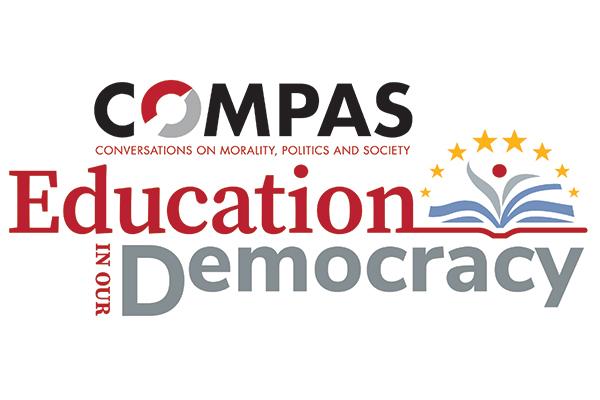
Overview
Even as controversy brews regarding loan forgiveness and the rising costs of higher education, some aspects of “high cost” extend beyond only the financial. In this event, our speakers address the ethical and political costs of attending – or not attending – higher education in the contemporary era. In identifying these costs alongside the financial burdens, democratic societies and the universities within them may have a foundation upon which to pursue new and more just aims.
In-person attendance is encouraged, but attendees are welcome to access the event virtually.
This colloquium is part of CEHV's 2022-23 COMPAS Program on Education in our Democracy.
Panelists
Christopher Martin (Associate Professor, Economics, Philosophy, and Political Science, Education, Faculty of Management, Philosophy, University of British Columbia)

Before moving in academia, Chris worked as a school principal and teacher in the Canadian (Newfoundland and Labrador) public education system. Dr. Martin’s research is focused on the philosophy of education. His specific areas of interest include educational ethics, the aims of higher education, and education for democratic deliberation. His work has been funded by the Social Sciences and Humanities Research Council of Canada, the Spencer Foundation, and the Centre for Ethics and Education (Wisconsin). His most recent book, The Right to Higher Education: A Political Theory (2022) makes the argument for universal access to post-compulsory education.
Jennifer Morton (Associate Professor, Philosophy and Graduate School of Education, University of Pennsylvania)

Before coming to Penn, I taught at the University of North Carolina at Chapel Hill, the City College of New York/the Graduate Center at CUNY, and Swarthmore College. My areas of research are philosophy of action, moral philosophy, philosophy of education, and political philosophy. I’m interested in how agents reason and act under conditions of adversity and in how educational institutions shape our agency. My book Moving Up Without Losing Your Way: The Ethical Costs of Upward Mobility, which has been awarded the Frederic W. Ness Book Award by the Association of American Colleges and Universities and selected as Princeton President Eisgruber’s Pre-Read for the Class of 2025, focuses on the ethical costs that first-generation and low-income students pay in order to take advantage of opportunities for socioeconomic mobility through education. You can learn more about my work at my webpage.
Moderator
Shanna Smith Jaggars (Assistant Vice Provost and director of the Student Success Research Lab, The Ohio State University)

Shanna Smith Jaggars is an Assistant Vice Provost and directs the Student Success Research Lab at The Ohio State University, where she helps identify challenges to college student success, inform potential solutions, assess impact on student experiences and outcomes, and facilitate systemic improvement. Among other projects, she is currently partnering in an evaluation of the university’s pilot affordability initiative, Scarlet & Gray Advantage. Previously, Dr. Jaggars was Assistant Director of the Community College Research Center, Teachers College, Columbia University, where she remains a Research Affiliate. Dr. Jaggars has published extensively on student success topics through academic journals, policy briefs, and practitioner guides, and is currently Senior Associate Editor for the journal Online Learning. Her 2015 book from Harvard University Press Redesigning America's Community Colleges (co-authored with Thomas Bailey and Davis Jenkins), remains a touchstone for nearly 400 community colleges in 16 states that are implementing guided pathways reform.
